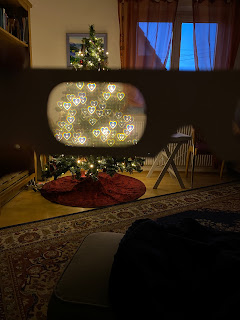I flung off the poncho and heard one student gasp audibly as all the “sins” I’d been covering suddenly became visible on my black vest. I was pleased that I had actually managed to walk around the last half hour of school with papers pinned all over me and no one knew. But then the funniest thing happened: even though I had been building up my Chapel talk to this moment, talking about my personal struggle with perfection and the need to hide my sins from the world, and even though I knew what was coming next, I suddenly felt that familiar shame. The kids could read all these sins all over me, and they would associate them with me. I had to resist the urge to reach up my hands and cover the vest. Just stick to the script, I told myself.
Forcing myself to read slowly and not rush, I shared the story from Zechariah 3, about Joshua the high priest who also stood before the Lord with filthy clothes. It had been a meaningful discovery in Scripture to me back in college and had become so again this fall as I saw similarities to the story of Edmund in our play (see previous posts). Excitedly, I got to the part where the angel removes Zechariah’s dirty garments and gives him clean, pure ones instead. I unzipped my black vest covered in sins and removed it before pulling out my white one with a single piece of paper pinned to it that read “Jesus.” When I actually put on the Jesus vest, two students clapped, and I laughed. I truthfully felt more free than I had just a moment before.
Then I introduced the idea of diffraction glasses. According to Galatians 3:27, I had actually “put on” Christ and was wearing him as clothes now, and the main idea I wanted my students to take away was that God now sees Jesus when he looks at me. Talk about no longer needing to live in that shame! Just as diffraction glasses are imprinted with some kind of image that then lets you then see that image everywhere you look, so God looks at me with Jesus-imprinted glasses. I am now fully IN Christ. One girl’s forehead actually wrinkled. So there was nothing to do but let them try it out for themselves.
My colleagues helped pass out the glasses, and students looked up at the ceiling where twinkle lights had been hung in preparation for the Christmas banquet. “Whoa, I see hearts everywhere!” a student exclaimed.
I only hope that when the glasses are long broken and in the trash, the truth of Scripture writes itself deeply on the hearts of these kids whom I love - that to trade garments with Christ not only brings ultimate release from the perfection struggle, but that they can live fully “in Christ,” clean and pure and shining with a Jesus-shaped ring around them.







